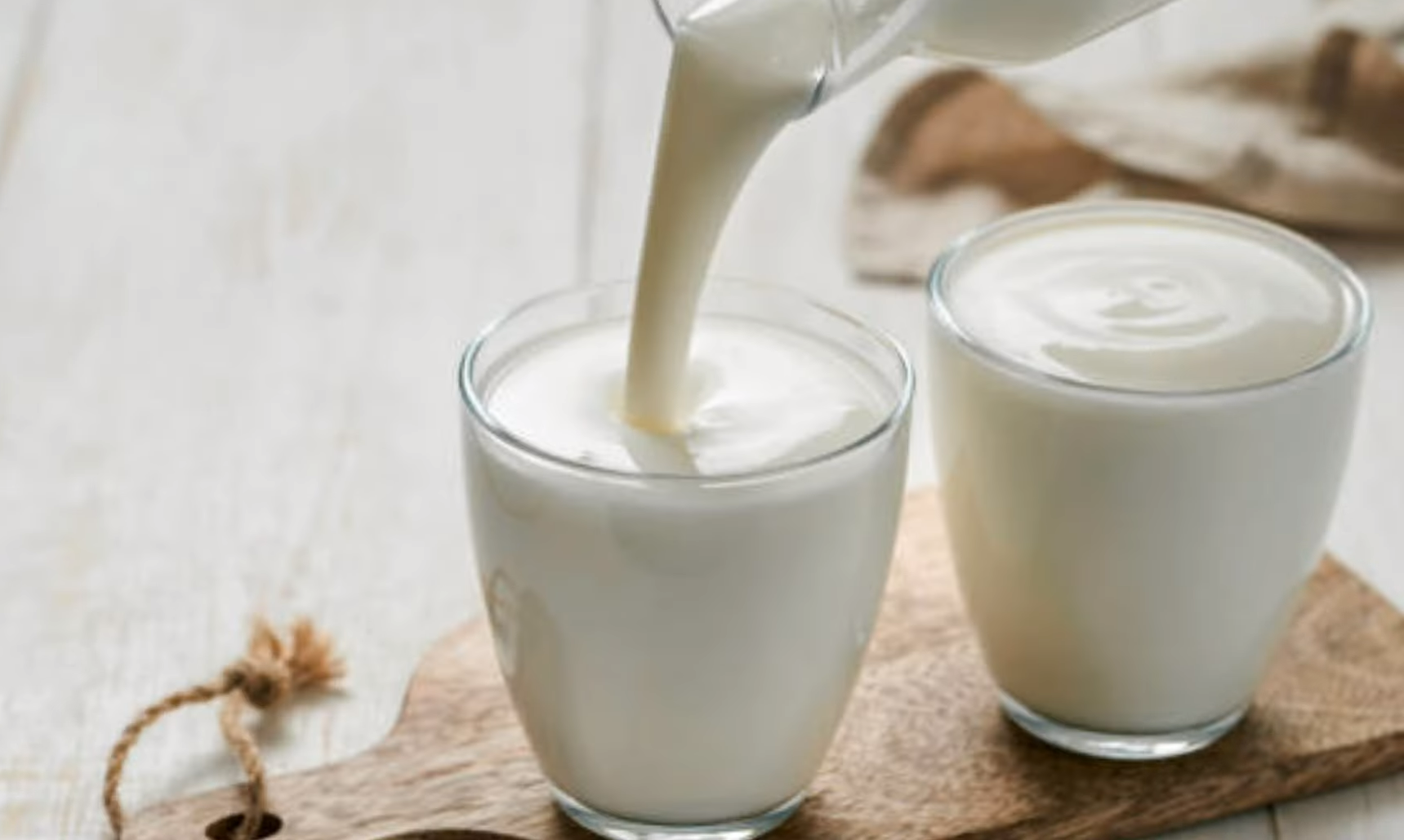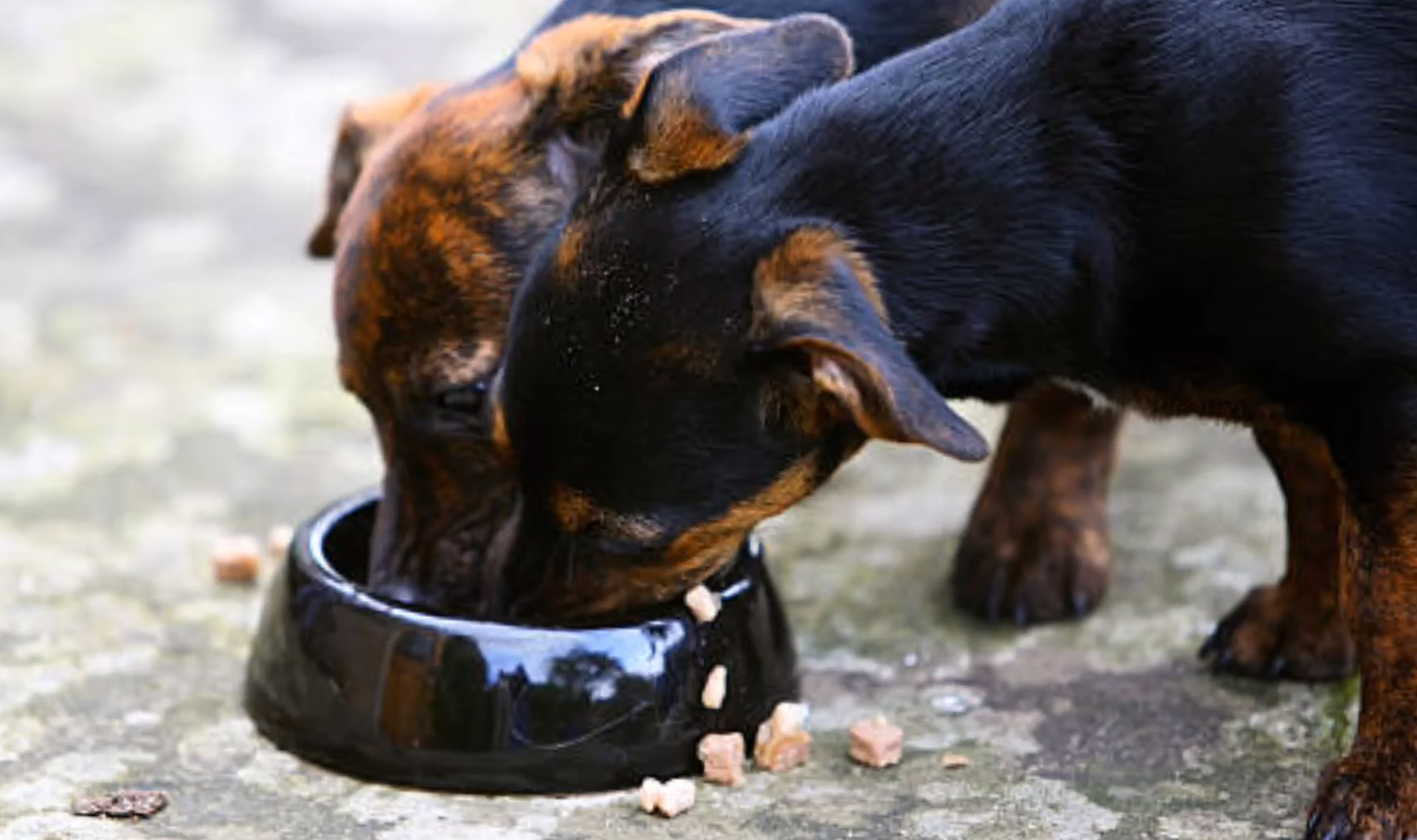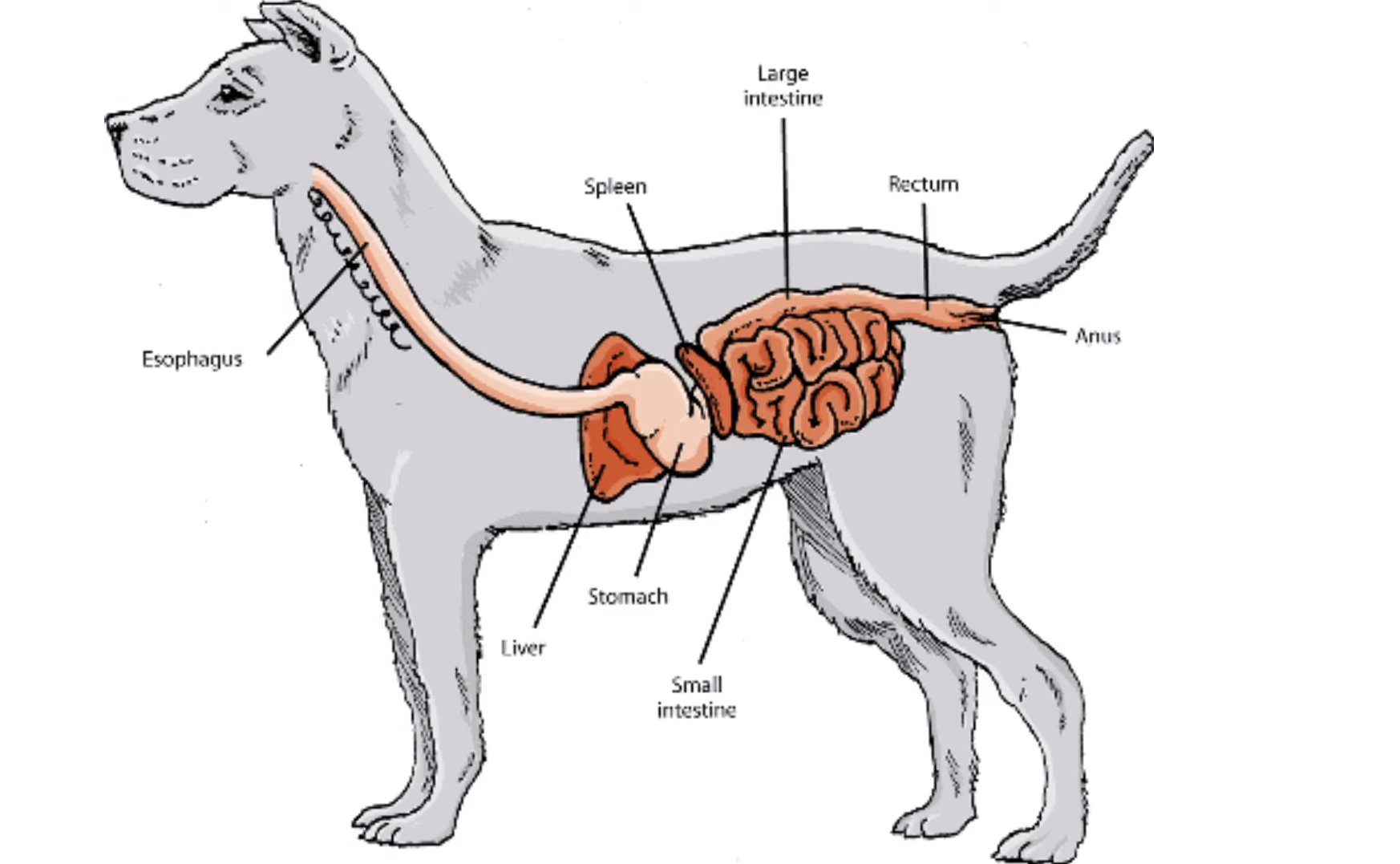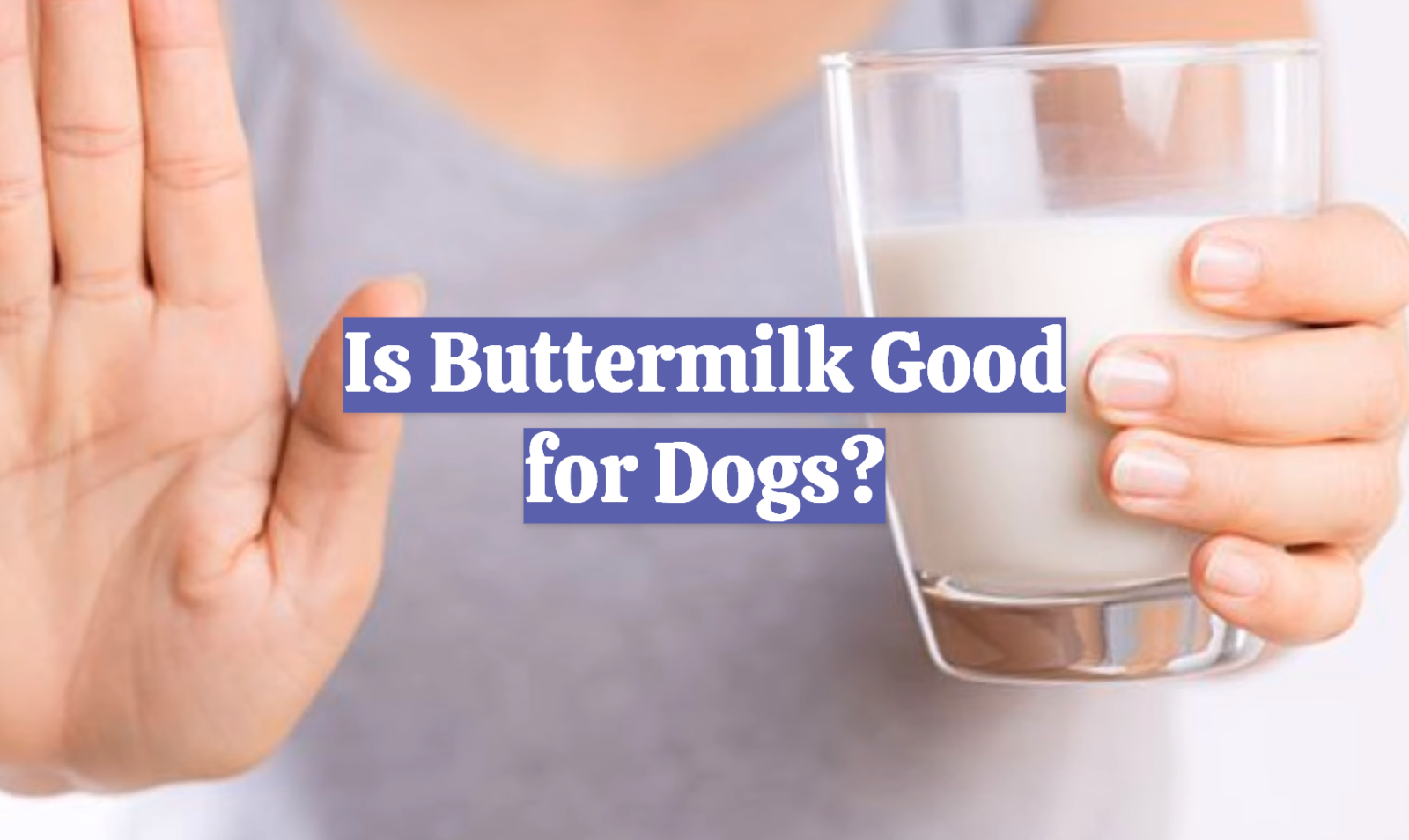When it comes to keeping our canine companions healthy, we often ask ourselves: Is buttermilk good for dogs? After all, if something is so popular among humans, surely it must be just as beneficial for our four-legged friends.
But the truth is that a responsible pet parent needs to understand what sorts of foods and drinks are safe – or unsafe – for their pup.
In this blog post, we’ll look at what the experts say about giving buttermilk to your doggo and why moderation is key when figuring out how much your pooch can consume safely. Read on!
What Is Buttermilk?
Buttermilk is a traditional dairy beverage made from the liquid left over after churning butter.
In its original form, it’s typically sour and slightly tangy in flavour due to the presence of lactic acid bacteria. Modern versions are often sweetened and flavoured with additives like vanilla or honey.

Is Buttermilk Good/Bad for Dogs?
The short answer is that it’s usually okay (but not ideal) for your pup to consume buttermilk in moderation. This is because, like other dairy products, buttermilk contains lactose.
Dogs don’t produce enough of the enzyme lactase to break down the sugar molecules in this beverage – meaning they can suffer digestive distress if given too much.
So while it’s alright for your pup to treat themselves to a small bowl of buttermilk now and then, you should still strive to limit their overall intake.

Why Is Buttermilk Good for Dogs?
Buttermilk can be a great source of vitamins, minerals, and electrolytes for dogs. It’s high in calcium, protein, and phosphorus – all of which help to promote healthy bones and teeth.
Additionally, the probiotics found in buttermilk can aid with digestion while also supporting a strong immune system.
Excellent protein source
Buttermilk also makes an excellent source of protein for your pup. It contains around 7g of protein per cup, which is slightly more than regular milk and yoghurt.
This can be especially beneficial for puppies or senior dogs who need extra nutrition to help them stay strong and healthy.
Rich in vitamins and minerals
Buttermilk is also rich in vitamins and minerals like Vitamin A, B12, magnesium, and iron. These micronutrients are essential for the proper functioning of your pup’s body – stimulating muscle growth, promoting eye health, and aiding in digestion.

Improved oral health
Last but not least, the lactic acid in buttermilk can help to keep your puppy’s teeth clean and fresh. The bacteria can break down plaque and tartar buildup on the surface of their enamel, promoting good oral hygiene as they enjoy this special treat.
Low cholesterol and blood pressure
The low cholesterol content of buttermilk can help to keep your dog’s blood pressure in check. It also provides fewer calories than other dairy products, making it a great alternative for seniors or pooches who are watching their waistlines.
Combats constipation
The high calcium and magnesium content of buttermilk can also help to combat constipation. These minerals work together to stimulate the colon and encourage proper digestion in your pup.

Why Is Buttermilk Bad for Dogs?
Despite the benefits, there are a few potential pitfalls to giving your pup buttermilk. As mentioned above, the lactose content can be difficult for them to digest and may lead to an upset stomach.
Additionally, the fat and calorie content of this beverage can contribute to obesity if consumed in large quantities over time.
Digestion problems
Buttermilk can also cause digestion problems in some dogs, including diarrhoea and flatulence. This is because the bacteria found in this beverage may be unfamiliar to their systems and could result in digestive distress or discomfort.
Lactose intolerance
If your pup is lactose intolerant or has an allergy to dairy products, you should avoid feeding them buttermilk. The symptoms of these conditions can range from mild indigestion to more severe reactions like hives, nausea, or vomiting.

High in sodium
Buttermilk is quite high in sodium–containing up to 200mg per cup. This can be detrimental to your pup’s health if consumed in large amounts over time, as an excess of sodium can lead to dehydration and other problems.
What Happens if My Dog Drinks Buttermilk?
In most cases, if your pup has a small amount of buttermilk on occasion, there shouldn’t be any major health issues. However, it’s important to monitor them closely and stop feeding it to them if they start showing signs of digestive distress.
What Should I Do If My Dog Drank Buttermilk?
If your pup has consumed a large amount of buttermilk, it’s best to contact your veterinarian right away. They may recommend that you get them checked out and provide treatment accordingly.
FAQ
What does buttermilk do for a dog?
Buttermilk can provide your pup with vitamins, minerals, and electrolytes that help promote healthy bones and teeth.
It’s also high in protein and calcium, which can aid muscle growth and digestion. Additionally, the lactic acid in buttermilk can help to keep their teeth clean and fresh.
Can I give my dog regular milk instead of buttermilk?
Regular milk is high in lactose, which may cause digestive distress for your pup. It’s also much higher in fat and calories than buttermilk. For these reasons, it’s usually best to opt for low-fat or non-dairy varieties when giving your dog dairy products.
Is curd or buttermilk good for dogs?
Curd and buttermilk can both be beneficial for your pup in moderation. Both contain probiotics which can help with digestion, as well as vitamins, minerals, and electrolytes that support strong bones and teeth. However, their high lactose content may cause digestive issues in some dogs.
Is buttermilk good for dog skin?
Buttermilk can help to keep your puppy’s skin healthy and moisturised. The lactic acid in this beverage helps to remove excess oil and dirt from the surface of their coat, while the probiotics help to boost their immune system and protect them from environmental toxins.
What milk is best for dogs?
Low-fat or non-dairy milks are usually the best for dogs. These varieties contain fewer calories and fat, making them easier to digest and better suited for pooches of all sizes.
They also provide similar vitamins, minerals, and probiotics that can help keep your pup healthy and happy.
Can we give buttermilk to dogs daily?
It’s best not to give your pup buttermilk daily. The high lactose content can cause digestive distress in some dogs, while the fat and calorie content may lead to obesity if consumed in large quantities over time.
Additionally, the sodium content of this beverage can be detrimental to their health if it’s consumed in excess.
Can I give my dog a bath with milk?
No, it’s not recommended that you bathe your pup with milk. The high lactose content can cause digestive distress, while the fat and calorie content may lead to obesity if consumed in large quantities over time.
Additionally, the sodium content of this beverage can be detrimental to their health if it’s consumed in excess. It’s best to stick with regular dog shampoos and conditioners for your pup’s bath-time routine.
What are the side effects of giving buttermilk to dogs?
The most common side effect of giving your pup too much buttermilk is digestive distress. This can include vomiting, diarrhoea, flatulence, and stomach discomfort. Additionally, the high fat and calorie content may lead to obesity if consumed in large amounts over time.
The sodium content can also be detrimental to their health if it’s consumed in excess. If your pup experiences any of these symptoms, it’s best to stop feeding them buttermilk and contact your veterinarian right away.
What happens if a dog drinks too much buttermilk?
If your pup has consumed a large amount of buttermilk, it’s best to contact your veterinarian right away. The high lactose content can cause digestive distress in some dogs, while the fat and calorie content may lead to obesity if consumed in large quantities over time.
Additionally, the sodium content of this beverage can be detrimental to their health if it’s consumed in excess. Your vet may recommend that you get your pup checked out and provide treatment accordingly.
What can I give my dog instead of buttermilk?
If your pup cannot tolerate buttermilk or you’d like to offer them a lower-fat alternative, there are several non-dairy milks available on the market.
These include almond milk, coconut milk, and oat milk – all of which provide similar vitamins, minerals, and probiotics that can help keep your pup healthy and happy.
Additionally, many grocery stores carry lactose-free milk that still contains the beneficial nutrients found in buttermilk.
What are the benefits of giving my dog buttermilk?
Buttermilk can provide your pup with vitamins, minerals, and electrolytes that help promote strong bones and teeth. It’s also high in protein and calcium, which can aid muscle growth and digestion.
Additionally, the lactic acid in buttermilk helps to keep their teeth clean and fresh. In moderation, it can also help keep their skin healthy and moisturised.
How often can I give my dog buttermilk?
It’s best not to give your pup buttermilk every day. The high lactose content may cause digestive distress in some dogs, while the fat and calorie content may lead to obesity if consumed in large amounts over time.
Additionally, the sodium content of this beverage can be detrimental to their health if it’s consumed in excess. A few tablespoons of buttermilk a week is enough to provide your pup with the beneficial nutrients found in this beverage without risking any health complications.
How much buttermilk should I give my dog?
It’s best to start with small amounts of buttermilk, such as 1-2 tablespoons per 10 lbs. of body weight each week. This is enough to provide your pup with the beneficial nutrients found in this beverage without risking any health complications. If your pup seems to tolerate this amount well, you may gradually increase the amount over time. However, it’s important to keep in mind that buttermilk should only be given in moderation.
How can I tell if my dog is having an adverse reaction to buttermilk?
If your pup is experiencing any of the following symptoms after consuming buttermilk, it’s best to contact your veterinarian right away: vomiting, diarrhoea, flatulence, stomach discomfort, and/or excessive drooling.
Additionally, watch for signs of obesity such as weight gain or difficulty exercising. These may indicate that your pup is consuming too much buttermilk and should stop consuming it immediately.
Why is buttermilk good for dogs?
Buttermilk contains a variety of beneficial vitamins, minerals, and electrolytes that help promote strong bones and teeth. It’s also high in protein and calcium, which can aid muscle growth and digestion.
Additionally, the lactic acid in this beverage helps to keep their teeth clean and fresh while providing essential probiotics that boost their immune system. In moderation, it can also help keep their skin healthy and moisturised.
Why is buttermilk bad for dogs?
The high lactose content of buttermilk can cause digestive distress in some dogs, while the fat and calorie content may lead to obesity if consumed in large quantities over time.
Additionally, the sodium content of this beverage can be detrimental to their health if it’s consumed in excess. For these reasons, it’s important to only feed your pup buttermilk in moderation.
Does buttermilk help a dog’s digestion?
Yes, the probiotics found in buttermilk can help aid digestion and boost your puppy’s immune system.
Additionally, lactic acid promotes healthy teeth and bones while helping to keep their skin moist and healthy. However, it’s important to only feed your pup this beverage in moderation.
Do I need to give my dog buttermilk or can I use regular milk?
It’s best to stick with regular milk for your pup’s daily hydration needs. Although buttermilk contains beneficial vitamins, minerals, and electrolytes that can help promote their overall health and well-being, the high lactose content may cause digestive distress in some dogs.
Additionally, the fat and calorie content may lead to obesity if consumed in large amounts over time. Therefore, it’s best to only give them this beverage in moderation.
Does buttermilk have any nutritional benefits for dogs?
Yes, buttermilk can provide your pup with a wide variety of beneficial vitamins, minerals, and electrolytes that help promote strong bones and teeth. It’s also high in protein and calcium, which can aid muscle growth and digestion.
Additionally, the lactic acid in this beverage helps to keep their teeth clean and fresh while providing essential probiotics that boost their immune system. In moderation, it can also help keep their skin healthy and moisturised.
Does buttermilk help a dog’s coat?
Yes, the beneficial vitamins and minerals found in buttermilk can help keep your puppy’s skin healthy and moisturised. Additionally, the probiotics found in this beverage can aid digestion and boost their immune system.
However, it’s important to only feed your pup this beverage in moderation due to its high fat and calorie content.
Is buttermilk good for dogs with sensitive stomachs?
It’s best to avoid feeding your pup buttermilk if they have a sensitive stomach. The high lactose content in this beverage may cause digestive distress in some dogs, while the fat and calorie content may lead to obesity if consumed in large amounts over time.
Are there any alternatives to buttermilk for dogs?
Yes, several alternatives can provide your pup with the nutritional benefits of buttermilk without the risk of digestive distress. These include coconut and almond milk, both of which are low in lactose and high in beneficial nutrients.
Additionally, many grocery stores carry lactose-free milk that still contains the beneficial nutrients found in regular milk. Finally, plain yoghurt is a great option for pups with sensitive stomachs due to its high probiotic content.
Does buttermilk have any side effects?
The high lactose content of buttermilk can cause digestive distress in some dogs, while the fat and calorie content may lead to obesity if consumed in large quantities over time.
Additionally, the sodium content of this beverage can be detrimental to their health if it’s consumed in excess. For these reasons, it’s important to only feed your pup buttermilk in moderation.
Do I need to give my dog buttermilk or can I use regular milk?
It’s best to stick with regular milk for your pup’s daily hydration needs. Although buttermilk contains beneficial vitamins, minerals, and electrolytes that can help promote overall health and well-being, the high lactose content may cause digestive distress in some dogs.
Additionally, the fat and calorie content may lead to obesity if consumed in large amounts over time. Therefore, it’s best to only give them this beverage in moderation.
Does buttermilk help a dog’s digestion?
Yes, the probiotics found in buttermilk can help aid digestion and boost your puppy’s immune system.
Additionally, lactic acid promotes healthy teeth and bones while helping to keep their skin moist and healthy. However, it’s important to only feed your pup this beverage in moderation.
Do I need to give my dog buttermilk every day?
No, you don’t need to give your pup buttermilk every day. The high lactose content in this beverage may cause digestive distress in some dogs, while the fat and calorie content may lead to obesity if consumed in large amounts over time. For these reasons, it’s best to only give them this beverage in moderation.
Useful Video: Can Dogs Eat Curd Buttermilk? / Dog ke liye Dahi or chass kaise de
Conclusion
As we have seen, there are both beneficial and unhealthy aspects of feeding buttermilk to your pet. To make an educated decision on which route will be the most beneficial for their health, consult with a veterinarian or animal nutritionist to decide if this is the right way to go.
Ultimately, it’s important to provide your pet with food that has natural and nutritious ingredients. There are many ways to give your dog the proper amount of healthy nutrients in their diet and buttermilk may fit into this equation too. Remember, you should always keep safety in mind when feeding something new to your pet as not all animals will be able to handle lactose-filled items like buttermilk.
We hope you find these tips useful and wish you the best of luck in giving your furry friend the care they need! Be sure to stay informed about your pet’s nutrition needs and stay up-to-date on the newest research available regarding canine diets.
References:
- https://bulldogpapa.com/can-dogs-drink-buttermilk/










Exploring the question of whether buttermilk is good for dogs, my experience has been positive when used in moderation. Recently, my dog faced digestive issues, and our vet recommended a bland diet. I added small amounts of buttermilk to plain rice, providing a palatable and easily digestible option. The probiotic content in buttermilk seemed to aid in restoring his digestive balance, offering a gentle solution during a period of stomach upset.
In the context of my dog’s occasional struggle with dehydration, buttermilk has proven to be a valuable ally. After a particularly active day outdoors, I noticed signs of mild dehydration, and our vet suggested a hydrating mix. I blended buttermilk with water and froze it into pup-friendly ice cubes. These not only served as a hydrating treat but also provided a cooling sensation, making them a refreshing solution during warmer days.
Dealing with my senior dog’s dietary challenges, incorporating buttermilk has been beneficial. Aging often comes with a decrease in appetite, and our vet suggested adding buttermilk to his meals for an extra flavor boost. It worked wonders, enhancing the palatability of his food and encouraging him to eat more. This experience highlighted how buttermilk can be a useful tool in maintaining a balanced and enticing diet for senior dogs.
Recently, during a period of convalescence after surgery, my dog’s appetite waned, posing a concern for adequate nutrition. Our vet recommended a mixture of buttermilk with baby food, creating a nutrient-rich blend. The smooth consistency and appealing taste of this concoction helped in ensuring he received essential nutrients during the recovery phase. It became a go-to solution, showcasing the adaptability of buttermilk in catering to specific dietary needs.
Considering my dog’s love for frozen treats, I experimented with creating buttermilk-based pupsicles. Blending buttermilk with banana slices and a touch of honey, I froze the mixture into delightful, icy treats. These not only became a hit during hot summer days but also offered a fun and nutritious way to incorporate buttermilk into his diet. The cooling effect and enticing flavor made these homemade treats a favorite, showcasing how buttermilk can be a versatile and enjoyable addition to a dog’s snack repertoire.
Reflecting on whether buttermilk is suitable for dogs, I found it to be a valuable ingredient in a homemade doggy smoothie. Combining buttermilk with plain yogurt, blueberries, and a splash of honey, I created a nutrient-packed blend. This smoothie not only served as a tasty occasional treat but also introduced essential vitamins and antioxidants into my dog’s diet. It became a enjoyable way to enhance his nutrition while keeping things interesting during mealtime.
Recently, when my dog experienced a bout of diarrhea, I sought natural remedies to soothe his upset stomach. Our vet recommended a simple buttermilk and pumpkin mixture. The probiotics in the buttermilk, combined with the soothing properties of pumpkin, worked wonders in regulating his digestive system. It became a go-to solution during episodes of stomach upset, demonstrating how buttermilk can be a gentle and effective aid in managing digestive issues.
Dealing with a picky eater, I discovered that buttermilk can be a game-changer in making regular meals more enticing. Drizzling a small amount of buttermilk over his kibble added a new dimension of flavor, transforming mundane meals into something he eagerly looked forward to. This experience highlighted the potential of buttermilk to elevate the appeal of standard dog food, making it a useful tool for enhancing overall meal satisfaction.
My exploration into the benefits of buttermilk for dogs extended to its potential as a dietary supplement for skin and coat health. Mixing a teaspoon of buttermilk into my dog’s food every few days seemed to contribute to a shinier and healthier coat. The richness in essential fatty acids and nutrients in buttermilk became evident in the improved condition of his fur, showcasing a holistic approach to canine well-being.
Recently, during a period of convalescence after a minor illness, my dog’s appetite diminished. Seeking ways to provide comfort and nutrition, I incorporated buttermilk into a homemade dog-friendly broth. This warm and nourishing concoction, made by simmering buttermilk with low-sodium chicken broth and rice, not only encouraged him to eat but also offered a soothing solution during his recovery. It underscored how buttermilk can be a versatile ingredient in crafting customized, appetizing meals to cater to a dog’s specific health needs.
Exploring the question of whether buttermilk is suitable for dogs, I stumbled upon its potential in addressing my dog’s occasional constipation issues. Mixing a small amount of buttermilk with his regular food proved to be an effective way to introduce extra moisture into his diet. The added hydration seemed to alleviate constipation and made mealtime more palatable for him, showcasing how a simple adjustment can contribute to digestive health.
I found that buttermilk became a key ingredient in my dog’s homemade training treats. Combining it with whole wheat flour and a touch of peanut butter, I crafted nutritious buttermilk biscuits. These treats not only became a tasty reward during training sessions but also offered a wholesome alternative to store-bought options. It emphasized how buttermilk can play a role in creating healthy and enjoyable snacks for dogs.